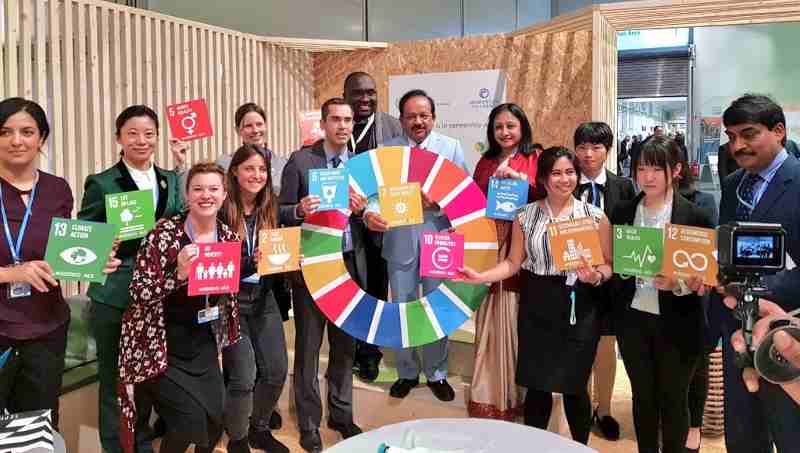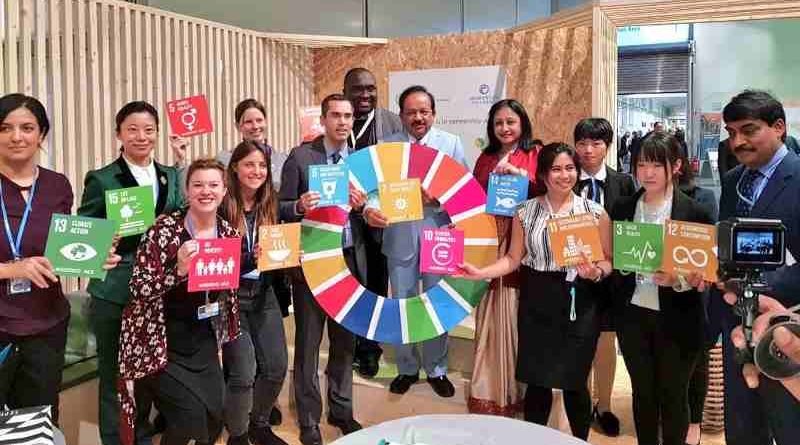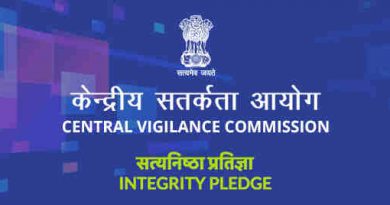India Getting Ready to Combat Climate Change

India’s Minister of Environment, Forest and Climate Change, Harsh Vardhan said Monday that India considers climate change as a major threat to collective well-being and wants to play a positive, as well as constructive role in combating it.
Addressing a gathering at the inauguration of India Pavilion at the ongoing meeting of Conference of Parties (COP-23) at Bonn in Germany, the Minister said that climate change will put a disproportionate burden on the poor and marginalised sections of the global community.
He added that scientific evidence clearly indicates the severity of climate change and the cost of delayed action. “Access to clean air, water, and a livable climate are inalienable human rights. And solving this crisis is just not a question of politics, it is our moral obligation,” Harsh Vardhan said.
What Is Climate Change?
Climate Change refers to the change in the distribution of weather patterns over a period of time – usually measured over decades to thousands of years. Climate Change is caused by natural factors as well as human activities.
Natural factors such as variations in solar radiation received by Earth, plate tectonics, and volcanic eruptions contribute to the change in global weather conditions. The human activities that cause Climate Change are referred to as ‘global warming’. In the modern environment science, the term ‘global warming’ is interchangeably used with Climate Change.
The main cause of global warming or the human-led Climate Change is environmental pollution which contaminates the atmosphere with pollutants such as chemicals and energies. Pollution, therefore, has become a major factor that is causing ‘global warming’ or Climate Change.
[ Join the Green Group of Dwarka ]
As compared to the perils of environmental pollution that affect human health, the Climate Change brings mass destruction with floods, droughts, hurricanes, tornadoes, volcanic eruptions, earthquakes, and tsunamis.
Climate Change, which is an emerging subject in the global debate on environment, has assumed greater significance after 2016 Paris Agreement on Climate Change or Paris Climate Agreement.
It is an agreement within the United Nations Framework Convention on Climate Change (UNFCCC) that aims to deal with greenhouse gas emissions mitigation and overall environment protection, starting in the year 2020. As of August 2017, 195 UNFCCC members have signed the Agreement and out of them 160 have ratified it.
By Rakesh Raman
Emphasising that though India’s per capita emissions are only one-third of global average and its contribution to global stock of carbon dioxide is less than 3%, India has still moved ahead with implementation of initiatives under the leadership of the Prime Minister, Narendra Modi.
Inviting views and best practices among different stakeholders, Harsh Vardhan stated that one of the key global objectives is to develop an inclusive world order that does not leave anyone behind.
The Minister underlined poverty eradication as one of the most fundamental objectives we all must work together upon. He also pointed out that the contribution of citizens, sustainable lifestyles and climate justice provides an alternative means to address climate change, which must be rigorously pursued.






